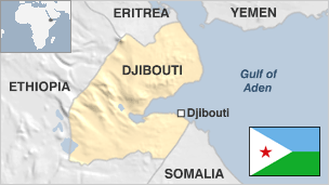
Facts and stats about Djibouti
Djibouti is one of the smallest countries in the African continent. The multi-party and multi-ethnic coalition under President Ismael Omar Guelleh controls all levels of government. He was re-elected by a wide margin during the April 2011 elections. Djibouti is located near the entrance of the Red Sea. The nation’s economy is focused on port and railway facilities as well as the French, Japanese, and American military bases in the country. Most of the people live in the capital city.
The prices of basic commodities have stabilized to some extent in 2012 but still remain very high. Djibouti depends a great deal on food imports. It has limited natural resources and industry. The government also relies on foreign aid to help support balance of payments and fund development projects. There is scarcity of water and 60 percent unemployment rate. Economic growth reached 4.5 percent in 2012 fueled by port activity and foreign direct investments. Investments were directed towards the salt mining project in Lake Assal and construction of the Chabelley airport facility. Other sectors like tourism, telecommunications and construction are growing steadily.
The government launched a $4.3 billion investment program and secured subsidy to construct new port facilities for salt and potassium exports that will start operations soon. These investments can possibly sustain economic growth until this year and even beyond. Djibouti is also formulating a long-term development plan described as Vision 2035. Economic experts are looking at the possible diversification of sources of national growth and job generation. Djibouti maintains foreign relations with the United States, France, China and Japan along with some Arab nations.
- Agriculture 85
- Background 9
- Conflict 2
- Cost of living 34
- Crime 17
- Culture 13
- Economy 1734
- Education 384
- Energy 311
- Environment 124
- Geography 86
- Government 174
- Health 270
- Import 2
792,198
Population. Ranked 162nd in 2013.
$1,061.64
GDP per capita. Ranked 155th in 2007.

23,180 sq km
Sq. km. Ranked 141st in 2008.